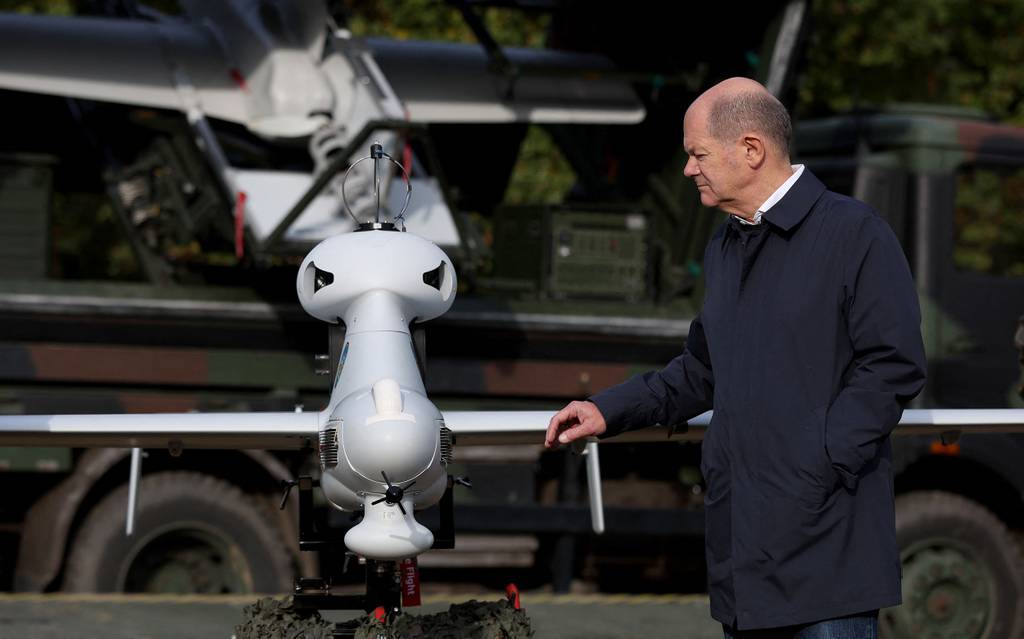STUTTGART, Germany — Ukraine’s allies in Europe are sending Ukraine new unmanned aerial systems and counter-drone equipment, as the war instigated by Russia enters its 18th month.
German weapons maker Rheinmetall is preparing to send its LUNA NG (next-generation) unmanned reconnaissance drone to Kyiv, the company announced Aug. 14. The system should be delivered by the end of the year, according to a spokesperson.
The LUNA NG is part of a sizable military aid package for Ukraine initiated by the German government in July. The Bundeswehr calls the system “Husar.†Per Rheinmetall, it includes a ground control station and several UAVs, as well as a launch catapult, an optional net equipment for catching the drones when they land, and equipment for rapid repair. The system is mounted on a Rheinmetall HX truck with a swap body system.
The company asserts the drone can remain aloft for over twelve hours and maintain a datalink range of up to 100 kilometers normally, and up to 300 kilometers when fitted with optional satellite communication equipment.
The Bundeswehr has operated LUNA UAV systems since the early 2000s. Those were originally developed by German manufacturer EMT Penzberg, which was acquired by Rheinmetall in 2021.
The German Ministry of Defence did not respond to questions regarding the total number of LUNA NG units procured for the Bundeswehr, nor the number of units going to Ukraine. Rheinmetall described the order value as a “low, double-digit million euro amount.â€
Berlin has already delivered a number of reconnaissance drones to Ukraine, including 88 Vector drones from Quantum Systems, 20 RQ-35 Heidrun systems from Danish company Sky-Watch, and 32 unspecified reconnaissance drones, as of August 9.
Meanwhile, Ukraine will also soon receive a series of CORTEX Typhon counter-UAS systems made by Norway’s Kongsberg, after the company signed an agreement via the International Fund for Ukraine.
The delivery consists of several CORTEX Typhon systems, developed to counter a wide spectrum of UAVs with solutions to either physically harm or otherwise disable the aerial threat, Kongsberg said in an Aug. 14 press release.
The International Fund for Ukraine (IFU) is a funding mechanism run by the United Kingdom on behalf of several international partners – including the UK, Norway, Netherlands, Denmark, Sweden, Iceland, and Lithuania – who together have contributed over £770 million ($977 million) to the fund to date. It was established for those partners to identify and procure critical capabilities and deliver them quickly to Ukraine.
The Kongsberg contract value is £56 million ($72 million), per the company. As part of the delivery, the Norwegian government has donated Dingo 2 armored vehicle personnel carriers, Kongsberg remote weapon systems, and additional weapons. The date of delivery, nor the number of units, was not given.
Vivienne Machi is a reporter based in Stuttgart, Germany, contributing to Defense News' European coverage. She previously reported for National Defense Magazine, Defense Daily, Via Satellite, Foreign Policy and the Dayton Daily News. She was named the Defence Media Awards' best young defense journalist in 2020.








